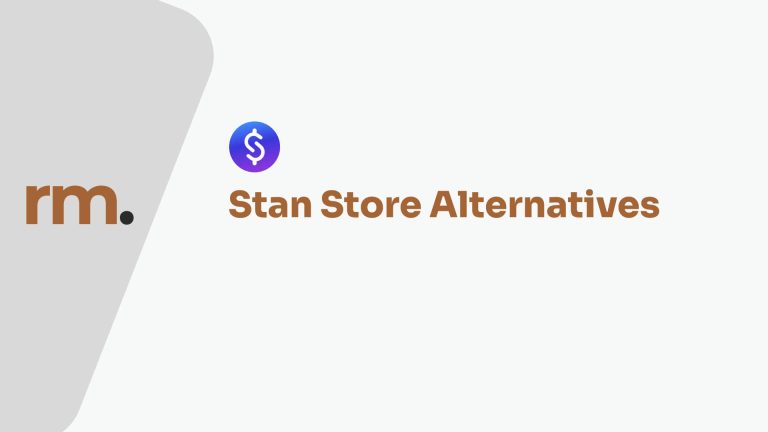The internet has provided a world of opportunities to work remotely and most of us are in fact overwhelmed with the idea of starting a remote business. There are various ways in which you go about finding online business ideas but it’s a whole other process to choose which one is right for you.
This article outlines the process of evaluating a business idea and identifies if you should pursue it or not. It would finally end with providing some examples of online businesses that you can operate from anywhere in the world.
Generating ideas for an online business
If you are a budding entrepreneur or a full-time employee that wants to start a side hustle, one of the easiest options to consider is to set up an online business. It’s extremely easy to get started and involves very little cost.
However, this has led to many people flooding in, and there as many others like you who wants to start something online. This shouldn’t discourage you though. There are many who get it right too and the opportunities are huge so getting a tiny fraction of it can still be plentiful.
Simply consider the below framework that can help you towards creating a successful online business.
1. Determine if you want to offer products or services
Broadly, most business ideas can be categorized into two: products or services. Depending on what you’re interested in, you could pursue looking for ideas within these spaces.
- Products: This category can be subdivided into physical and digital products. Generally speaking, the latter is easier to operate online as they tend to be digital in nature and is therefore more easily distributable across the world unlike physical products.
- Services: These include specialized digital services that you could offer online. However, at this point, you need to identify if the skills can be easily delivered remotely/online. For example, business ideas relating to offering plumbing services would not qualify as you would need to be physically present at a specific geographic location. Instead, we are referring to services that can be delivered through the Internet. Some examples include web development, web designing, copywriting services, translation services, paid advertising, video production, search marketing (SEO), graphic designing, accounting, and legal services, certain administrative tasks (data entry) etc.
Do note that as we progress with the advancements in technology, the opportunities to deliver products/services online are increasing exponentially.

2. Choose a niche that aligns with your skills and interests
This part of the framework is about filtering the 1000’s of online business ideas and aligning them with your interests. One of the best ways to filter is by choosing a specific niche.
“A niche is a subset of the market on which a specific product is focused. The market niche defines the product features aimed at satisfying specific market needs, as well as the price range, production quality, and the demographics that it is intended to target. It is also a small market segment. Not every product can be defined by its market niche…”
Wikipedia
The importance of this is that it helps you narrow down your focus to a specific audience that you can mostly resonate with. It can therefore help you with easily come up with a marketing strategy that is very familiar to you.
The niche can either be a specific platform (eg: WordPress – for Website Development), Shopify – for eCommerce, Facebook Ads – for social media marketing etc.) combined with a specific target audience (eg: Shopify Development for small business owners), and geography (eg: Shopify development for small business owners in Seattle)
You get the idea! Here’s a list of niche ideas that can help you gain inspiration from.
3. Identify a business model for your online business ideas
Once you’ve identified the target market, it’s made easier to understand their needs and their perceptions of what you have to offer. Accordingly, you will devise a business model to deliver the products/services in a profitable manner.
The business model can also differ based on the type of offer. As you are browsing through online business ideas, it’s likely that they would fall under one of these three categories: physical products, digital & informational products, and digital services.
Let’s look at each in turn.
Physical products
This is the category most entrepreneurs starting up initially think of. The idea of creating a shippable, physical product (sometimes innovative) and selling them online through an online marketplace such as Amazon or by building your own eCommerce store.
One of the biggest benefits of retailing online is that there’s no need for a brick-and-mortar store which significantly reduces your overhead. It also lets you easily get your products in front of customers through your website or other channels.
However, it’s a route that has the least chance of running it 100% remotely. There needs some degree of physical presence especially when you have inventory and warehousing to deal with.
A variant of the eCommerce business model is called drop shipping. This model is where you sell physical products online without the hassles of having to create products, handle shipping, etc. Learn more about how you can start a drop shipping business.
Tip: Whattosell.online is a neat little tool that can help you generate physical product ideas. Also, this article from Salehoo has a list of items you can consider the drop shipping route.
Digital & informational products
Digital products generally include online tools such as software, templates, or apps that your target audience will use to solve a specific problem.
Informational products, on the other hand, are eBooks, courses, training, and tutorials that teach or guide your target audience to solve a specific problem.
Traditional businesses have to deal with overheads, inventory, employees and limited geographical reach. Digital and informational products don’t.
They are both delivered digitally making it very easy to distribute to the target audience. And it’s, therefore, one of the most popular categories.
The processes can also be mostly automated and accessed from anywhere in the world making it a more remote-friendly option. Basically, you create the product once, and then focus on marketing and driving website traffic. Every other part of the business is completely automated.
You must note however, there’s so much information available on the internet for free. So the question you need to address is: Does your content stand out enough to make your audience pay for it?
Digital Services
Selling digital services online is one of the lucrative ways of making money online. As opposed to providing physical services (such as plumbing, carpentry etc.), digital services are delivered online. Some examples of such services include lead generation, digital marketing, web designing & development, social media marketing, copywriting etc.
Depending on how you niche down your audience and service offering, you can generate online business ideas accordingly.
Generally, you would follow an agency model that other service-based businesses can benefit from what you have to offer.
For example, local dentists (a physical service provider) can benefit from your web development service to build an online booking module to schedule appointments.
Coming up with online business ideas
Using the above framework, you probably would’ve filtered out the type of online business you want to pursue. The next step is to start looking for them at the right places. Here’s a simple approach to help you come up with online business ideas:
- Identify what’s the next big thing: Use tools like Google Trends, Trends.vc, Glimpse or ExplodingTopics. Not only can they provide some inspiration but also learn how popular they are.
- Find the pain points common to your target audience: At Kernal, you’ll see a list of problems posted by various people online. Look for ones that match your interest.
- Read case studies of successful companies: You can look for companies that have already executed an idea similar to yours from which you can learn. StarterStory.com is a great resource to help you with this.
- Ask your audience: If you have one already, you could ask them directly what problems they would like solved. The responses will most likely help you identify some commonalities which you can you hopefully address by executing your online business idea.
- Using AI tools: Tools like IdeasAI make use of artificial intelligence to generate ideas. Filter through them to see what works for you.
Further resources that could help you
- Online Business Ideas: 16 Best Low-Cost Ideas and How to Start – Shopify
- 106 Online business ideas you can start today – Entrepreneur Handbook
- 27 Online Business Ideas for Beginners – WebsiteSetup.org
The point of sharing the above online business ideas is for you to get an understanding of what’s possible to achieve in the online space. Once you find something interesting, apply the framework above to create variants of each idea to suit your skillset and interest.



